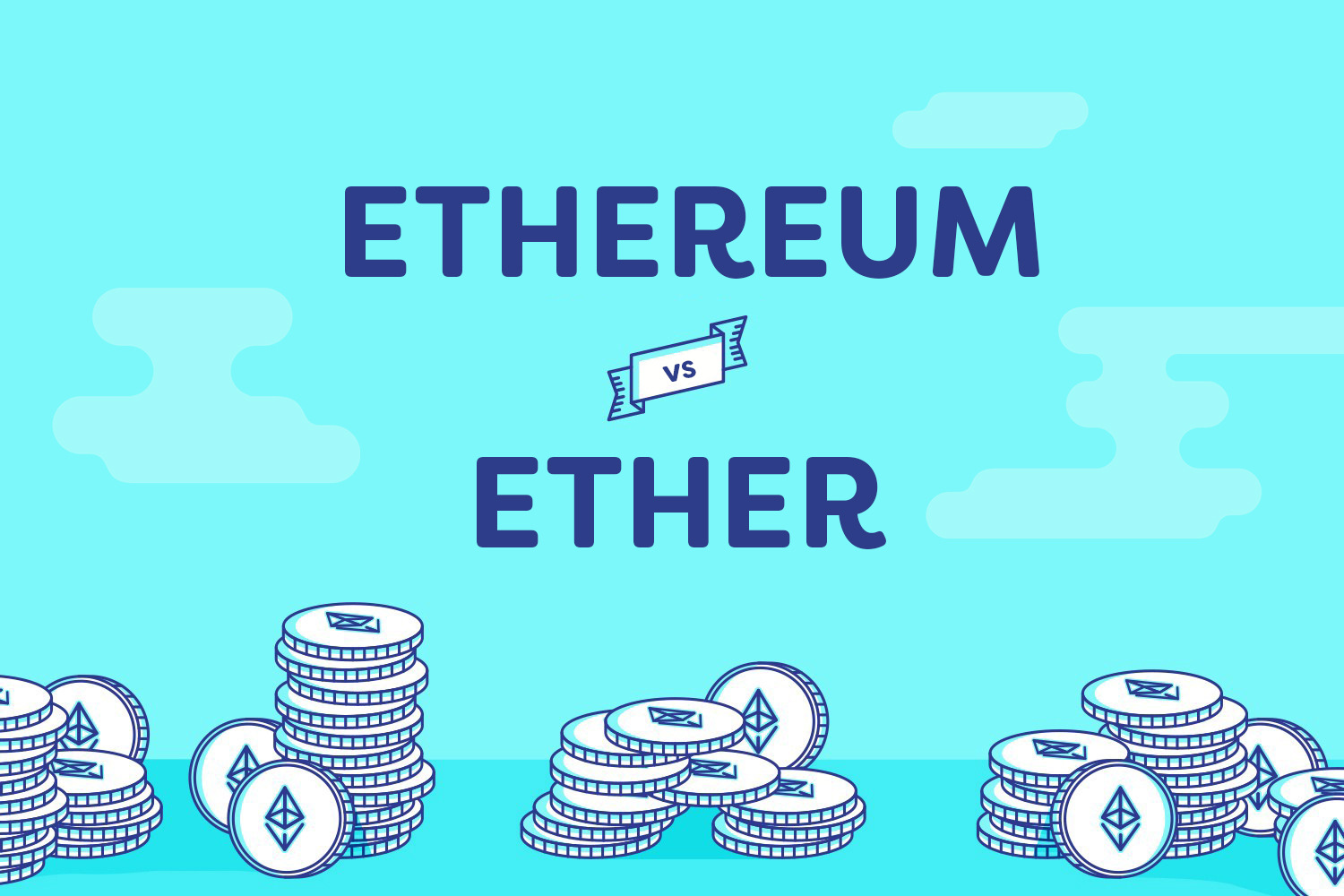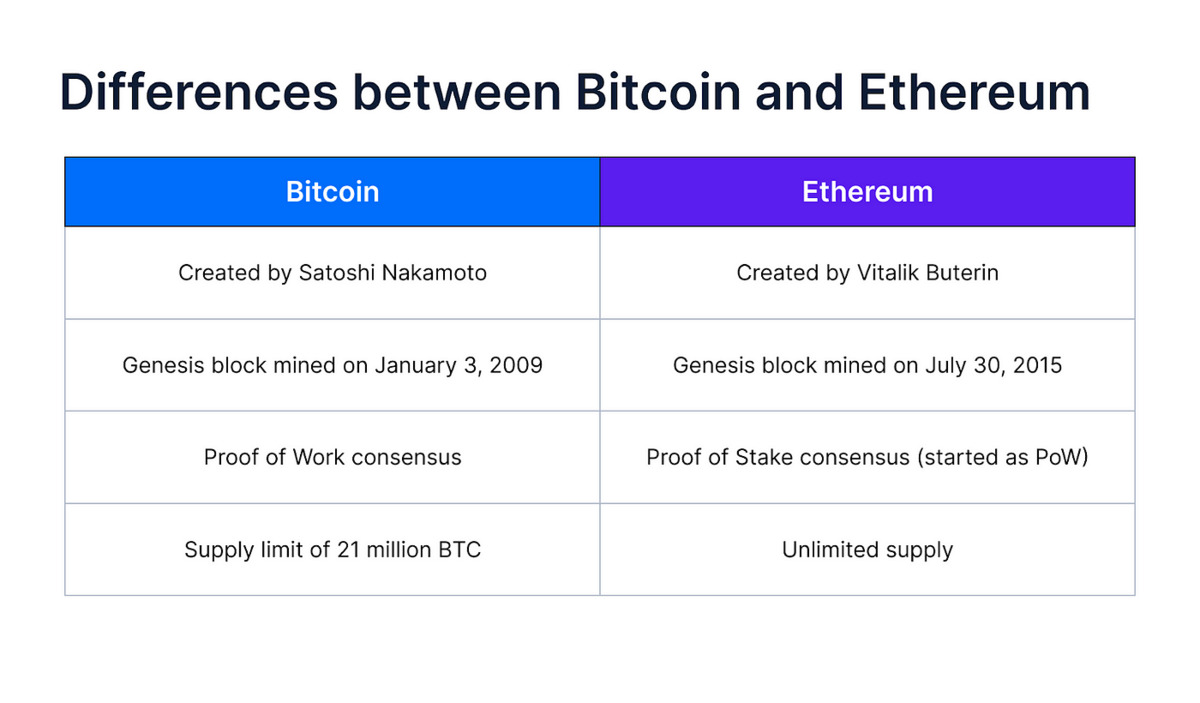What is a Smart Contract Cryptocurrency?
A smart contract cryptocurrency refers to a digital currency that utilizes smart contracts to facilitate secure and transparent transactions. Smart contracts, also known as self-executing contracts, are automated agreements that are written in code and automatically execute once certain predefined conditions are met. These contracts eliminate the need for intermediaries, such as banks or legal systems, as they are enforced by the underlying blockchain technology.
Smart contract cryptocurrencies leverage the power of blockchain, which is a decentralized and immutable ledger that records all transactions in a transparent and tamper-proof manner. This technology enables individuals to engage in peer-to-peer transactions without relying on a central authority. By employing smart contracts, these cryptocurrencies offer a higher level of trust and reliability, enhancing the efficiency and security of transactions.
One of the key advantages of using smart contract cryptocurrencies is their ability to eliminate the need for intermediaries. Traditional financial transactions often involve multiple parties, each with their own set of fees and potential for error. With smart contract cryptocurrencies, transactions are executed directly between the involved parties, reducing costs and streamlining the process.
Furthermore, smart contract cryptocurrencies provide greater transparency. Every transaction recorded on the blockchain is visible to all participants, ensuring that the records cannot be altered or manipulated. This transparency fosters trust and allows users to verify the authenticity of transactions, reducing the risk of fraud.
Smart contract cryptocurrencies also offer enhanced security. Traditional financial systems are vulnerable to hacking and fraud, as they rely on centralized databases that can be targeted. In contrast, blockchain technology used by smart contract cryptocurrencies is decentralized and secured through advanced cryptographic algorithms. This decentralized nature ensures that data is stored across a network of computers, making it extremely difficult for hackers to compromise the system.
Overall, smart contract cryptocurrencies provide a more efficient, transparent, and secure method of conducting transactions. By leveraging the power of blockchain and smart contracts, these cryptocurrencies have the potential to revolutionize various industries, including finance, supply chain management, and real estate, among others.
Definition of a Smart Contract
A smart contract is a self-executing contract that is written in code and automatically executes when certain predefined conditions are met. It is a digital agreement between two or more parties that is stored on a blockchain, a decentralized and transparent ledger. Smart contracts are designed to enforce the terms of the contract without relying on a centralized authority, such as a legal system or a financial institution.
Unlike traditional contracts, which are often written in legal language and require manual verification and enforcement, smart contracts are based on computer code. This code contains the rules and conditions that the parties have agreed upon. Once these conditions are satisfied, the smart contract automatically executes the terms of the agreement, ensuring that all parties fulfill their obligations.
Smart contracts are typically used to automate and streamline complex processes that involve multiple parties. They can be used in various industries, including finance, insurance, supply chain management, and real estate, among others. For example, in the finance industry, smart contracts can be used to automate the process of issuing and trading financial instruments, such as bonds or derivatives.
One of the key advantages of smart contracts is their transparency. All transactions and contract terms are recorded on the blockchain, making them publicly visible and immutable. This transparency fosters trust between the parties involved and eliminates the need for intermediaries. Additionally, smart contracts eliminate the potential for human error or bias, as the code ensures that the terms of the contract are executed as agreed upon.
Furthermore, smart contracts offer enhanced security compared to traditional contracts. Since smart contracts are stored on a decentralized blockchain, they are resistant to hacking and tampering. The use of cryptographic algorithms ensures that the data stored in the smart contract is protected and cannot be altered without detection.
Overall, smart contracts provide a more efficient, transparent, and secure way of executing and enforcing agreements. By leveraging blockchain technology and automated code execution, smart contracts have the potential to revolutionize how contracts are created and executed in various industries.
Features of a Smart Contract Cryptocurrency
A smart contract cryptocurrency possesses several distinctive features that set it apart from traditional forms of currency and make it a powerful and innovative solution for conducting transactions. These features include:
Decentralization: Smart contract cryptocurrencies are built on blockchain technology, which is decentralized and operates on a network of computers. This decentralized nature eliminates the need for a central authority, such as a bank, to oversee and validate transactions. Instead, transactions are verified and recorded by a network of participants, ensuring transparency and reducing the risk of manipulation or censorship.
Immutable Transactions: Once a transaction is executed and recorded on the blockchain, it becomes immutable. This means that the transaction cannot be altered or reversed, providing a high level of security and preventing fraudulent activities. The immutability of smart contract cryptocurrencies fosters trust among participants and prevents unauthorized changes to transaction records.
Automated Execution: Smart contract cryptocurrencies utilize self-executing contracts, meaning that they automatically execute the terms and conditions of an agreement once predefined conditions are met. This automation eliminates the need for intermediaries, streamlines the transaction process, and ensures efficient execution without human intervention.
Transparency: All transactions on a smart contract cryptocurrency are recorded on the blockchain, making them transparent and visible to all participants. This transparency enhances trust between users as they can independently verify transactions and monitor the flow of funds. Additionally, the transparent nature of smart contract cryptocurrencies reduces the risk of fraud and enhances accountability.
Security: Smart contract cryptocurrencies leverage advanced cryptographic techniques to ensure the security and integrity of transactions. These cryptographic algorithms protect user data, authenticate transactions, and prevent unauthorized access. With the use of cryptography, smart contract cryptocurrencies provide a robust and secure environment for conducting transactions.
Cost Efficiency: Smart contract cryptocurrencies eliminate the need for intermediaries, such as banks or financial institutions, which reduces transaction costs. By removing these intermediaries, users can save on fees and enjoy more cost-effective transactions. Furthermore, smart contract cryptocurrencies automate processes, reducing the need for manual oversight and minimizing associated costs.
These features make smart contract cryptocurrencies a powerful tool for conducting secure, efficient, and transparent transactions. By leveraging the advantages of blockchain technology and self-executing contracts, smart contract cryptocurrencies have the potential to revolutionize not only finance but also various other industries that rely heavily on trusted and efficient transactions.
How does a Smart Contract Cryptocurrency work?
A smart contract cryptocurrency operates through the use of blockchain technology and self-executing contracts, combining the benefits of both to create a secure and transparent system for conducting transactions. Here’s a breakdown of how a smart contract cryptocurrency works:
1. Blockchain Technology: Smart contract cryptocurrencies are built on a blockchain, which is a decentralized and transparent ledger that records all transactions. The blockchain consists of a network of computers, or nodes, that validate and verify transactions by reaching a consensus. Once a transaction is verified, it is added to a block, which is then linked to the previous blocks, creating an immutable and chronological chain of transactions.
2. Self-Executing Contracts: Smart contract cryptocurrencies utilize self-executing contracts, also known as smart contracts, to automate the execution of transactions. Smart contracts are written in code and contain predefined conditions that, when met, trigger the execution of the contract. These conditions are typically based on the agreement between the parties involved and can include factors such as payment completion, delivery of goods, or specific time frames.
3. Transaction Execution: When a smart contract cryptocurrency transaction is initiated, the conditions of the smart contract are evaluated. If the predefined conditions are met, the smart contract automatically executes the terms of the agreement. For example, in a real estate transaction, the smart contract may release funds to the seller once the buyer has received the title deed and verified its authenticity.
4. Validation and Consensus: The validation of smart contract transactions is done by the network of nodes in the blockchain. These nodes verify the accuracy of the transaction by validating the conditions set in the smart contract. Consensus mechanisms, such as Proof of Work or Proof of Stake, are used to ensure that the transactions are agreed upon by the majority of the nodes. Once the transaction is validated and confirmed, it is permanently recorded on the blockchain.
5. Transparency: All transactions executed using a smart contract cryptocurrency are recorded on the blockchain, making them transparent and visible to all participants. This transparency fosters trust and enables users to independently verify transactions and track the movement of funds.
6. Security: Smart contract cryptocurrencies employ advanced cryptographic algorithms to ensure the security of transactions. The use of cryptography protects the integrity of the data, ensures secure authentication of transactions, and prevents unauthorized access or tampering.
7. Decentralization: A key feature of smart contract cryptocurrencies is their decentralized nature. Unlike traditional financial systems that rely on a central authority, such as a bank, smart contract cryptocurrencies operate on a network of computers, removing the need for intermediaries. This decentralization enhances the security, transparency, and efficiency of transactions.
By combining blockchain technology with self-executing contracts, smart contract cryptocurrencies revolutionize the way transactions are conducted. They offer a decentralized, transparent, and secure solution that eliminates the need for intermediaries, streamlines processes, and enhances trust among participants.
Advantages of Smart Contract Cryptocurrencies
Smart contract cryptocurrencies offer several advantages over traditional forms of currency and financial systems. These advantages include:
1. Efficiency: Smart contract cryptocurrencies automate and streamline processes, eliminating the need for manual intervention. Transactions are executed automatically based on predefined conditions, reducing the time and effort required for verification and processing. This efficiency results in faster transaction settlements, quicker contract execution, and improved overall productivity.
2. Transparency: Transactions conducted using smart contract cryptocurrencies are recorded on a blockchain, making them transparent and visible to all participants. This transparency fosters trust among users, as they can independently verify the authenticity and accuracy of transactions. Additionally, the use of decentralized ledgers reduces the risk of fraudulent activities and increases the accountability of all parties involved.
3. Security: Smart contract cryptocurrencies leverage advanced cryptographic algorithms to secure transactions and protect user data. The use of cryptography ensures the integrity of the data stored in smart contracts and makes it virtually impossible for unauthorized entities to tamper with or manipulate the transactions. As a result, smart contract cryptocurrencies provide a high level of security and protect users’ financial assets.
4. Cost Savings: Smart contract cryptocurrencies eliminate the need for intermediaries, such as banks or financial institutions, thus reducing associated fees and transaction costs. By directly peer-to-peer transactions, users can save on fees charged by intermediaries. Furthermore, the automated nature of smart contracts eliminates the need for manual oversight, reducing administrative costs and increasing cost efficiency.
5. Elimination of Middlemen: Smart contract cryptocurrencies operate on a decentralized network, removing the need for intermediaries like banks or legal systems. This eliminates the dependency on third parties for transaction verification and execution, reducing the associated delays and costs. Users can directly engage in peer-to-peer transactions, enhancing the speed and efficiency of transactions.
6. Enhanced Trust: The transparency and immutability of smart contract cryptocurrencies build trust among participants. All transactions and contract terms are recorded on the blockchain, ensuring transparent and auditable processes. This eliminates the need to rely on trust in a central authority and reduces the risk of fraud or manipulation.
7. Global Accessibility: Smart contract cryptocurrencies are accessible to anyone with an internet connection, regardless of geographical location. This allows individuals, businesses, and organizations to engage in cross-border transactions seamlessly, without being limited by traditional banking systems or currency exchange restrictions.
These advantages highlight the transformative potential of smart contract cryptocurrencies. By leveraging automation, transparency, security, and cost efficiency, these cryptocurrencies have the ability to revolutionize traditional financial systems and streamline transactions across industries.
Examples of Smart Contract Cryptocurrencies
Several smart contract cryptocurrencies have emerged in recent years, each offering unique features and use cases. Here are a few examples:
1. Ethereum (ETH): Ethereum is a blockchain platform that enables the creation and execution of smart contracts. It introduced the concept of decentralized applications (DApps) and smart contracts. Developers can utilize Ethereum’s native programming language, Solidity, to write and deploy custom smart contracts for various use cases, including finance, gaming, and decentralized exchanges.
2. Cardano (ADA): Cardano is a blockchain platform that aims to provide a secure and sustainable platform for the development of smart contracts. It utilizes a unique proof-of-stake consensus algorithm called Ouroboros and employs a layered architectural approach to enhance security and scalability. Cardano aims to enable the creation of complex smart contracts while ensuring the sustainability of the blockchain network.
3. Neo (NEO): Neo is a blockchain platform that supports the development and execution of smart contracts and DApps. It aims to create a smart economy by combining digital assets, digital identity, and smart contracts. Neo uses a unique consensus mechanism called Delegated Byzantine Fault Tolerance (dBFT) and supports multiple programming languages, making it accessible to a wide range of developers.
4. EOS (EOS): EOS is a blockchain platform that offers high performance and scalability for the execution of smart contracts and DApps. It aims to provide a user-friendly experience for developers by offering toolsets and frameworks to simplify the development process. EOS uses a delegated proof-of-stake (DPoS) consensus algorithm, enabling faster transaction processing and high throughput.
5. Binance Smart Chain (BSC): Binance Smart Chain is a blockchain platform that runs parallel to the Binance Chain. It offers a high-performance smart contract environment and supports the development and execution of DApps. BSC aims to provide low fees, fast transaction processing, and compatibility with the Ethereum Virtual Machine (EVM), allowing developers to easily migrate Ethereum-based projects to BSC.
6. Tron (TRX): Tron is a blockchain platform that focuses on the decentralized entertainment and content-sharing industry. It enables the creation and execution of smart contracts for various entertainment-related applications, such as gaming, streaming, and social media. Tron aims to democratize the entertainment industry by eliminating intermediaries and empowering content creators.
These examples represent just a small portion of the smart contract cryptocurrencies available today. Each platform offers unique features, capabilities, and target industries, demonstrating the versatility and potential of smart contract technology in revolutionizing various sectors of the economy.
Challenges and Risks of Smart Contract Cryptocurrencies
While smart contract cryptocurrencies offer numerous advantages, they also come with their fair share of challenges and risks. It’s essential to be aware of the potential pitfalls associated with these technologies. Here are some of the challenges and risks:
1. Smart Contract Bugs and Vulnerabilities: Despite rigorous development and testing, smart contracts can still contain bugs or vulnerabilities in their code. Exploiting these vulnerabilities can lead to financial losses and the potential compromise of sensitive information. The immutability of smart contracts makes it difficult to rectify such issues after deployment. As a result, thorough code audits and security testing are crucial to minimize risks.
2. Complexity and Lack of Standardization: Smart contract development often requires specialized programming skills and knowledge of specific programming languages. The lack of standardization across different smart contract platforms can lead to fragmentation and compatibility issues. Developers must overcome these complexities to ensure smooth integration and interoperability between various blockchain networks.
3. Regulatory and Legal Uncertainty: As smart contracts and cryptocurrencies challenge existing regulatory frameworks, there is a lack of legal clarity in many jurisdictions. This uncertainty can hinder the adoption and acceptance of these technologies, as regulatory authorities grapple with defining appropriate regulations. Smart contract users must navigate these legal complexities and ensure compliance with applicable laws and regulations.
4. Irreversibility of Transactions: The immutability of smart contract transactions, while providing security and transparency, can also be a double-edged sword. In the case of erroneous or fraudulent transactions, it can be extremely challenging to reverse or rectify them. Users must exercise caution and carry out due diligence to mitigate the risks associated with irreversible transactions.
5. Lack of Governance and Dispute Resolution: Smart contracts operate on a decentralized network, often lacking a central authority to adjudicate disputes or enforce the terms of an agreement. In the event of a disagreement or breach of contract, the absence of an established governance mechanism can make dispute resolution complicated. The development of decentralized governance models and arbitration systems is necessary to address these challenges.
6. Scalability and Performance: Some smart contract platforms face scalability and performance issues as the number of transactions and users increase. High transaction fees, network congestion, and slower transaction processing times can impact the user experience and limit the growth potential of smart contract cryptocurrencies. Ongoing research and development efforts are focused on improving scalability and enhancing the performance of these platforms.
7. External Dependency and Oracles: Smart contracts often rely on oracles, which are external sources of data, to obtain real-world information to trigger contract execution. The accuracy and reliability of these oracles are crucial, as incorrect or manipulated data can lead to unintended consequences or financial losses. Ensuring the security and trustworthiness of oracles is a significant challenge for smart contract cryptocurrencies.
Understanding and mitigating these challenges and risks are imperative for the successful adoption and utilization of smart contract cryptocurrencies. Collaboration among industry participants, continued research, and the development of best practices will help address these concerns and pave the way for a more robust and secure smart contract ecosystem.
Future Implications of Smart Contract Cryptocurrencies
Smart contract cryptocurrencies have the potential to reshape numerous industries and drive significant changes in the future. Here are some of the key implications that smart contract cryptocurrencies may have:
1. Disintermediation: Smart contract cryptocurrencies eliminate the need for intermediaries such as banks, brokers, and legal systems. This disintermediation can lead to more direct and cost-effective transactions, bypassing traditional gatekeepers in finance, supply chain management, real estate, and other sectors. It has the potential to democratize access to financial services and empower individuals and businesses with greater control over their assets.
2. Increased Efficiency: With the automation and self-execution capabilities of smart contracts, transactions can be executed more efficiently and without manual intervention. This increased efficiency can result in faster settlement times, reduced administrative costs, and streamlined processes across various industries. The elimination of middlemen and the associated delays can unlock significant productivity gains.
3. Enhanced Transparency and Trust: Smart contract cryptocurrencies leverage blockchain technology, which provides transparency and immutability of transaction records. This transparency enhances trust among participants by allowing them to independently verify and audit transactions. The immutable nature of transactions stored on the blockchain reduces the risk of fraud and fosters a higher level of trust and accountability.
4. Automation of Complex Processes: Smart contract cryptocurrencies enable the automation of complex processes that traditionally require multiple intermediaries and lengthy paperwork. For instance, in supply chain management, smart contract cryptocurrencies can facilitate the automatic verification of product authenticity, tracking of goods, and prompt payment upon delivery. This automation can streamline the entire supply chain, reducing costs, improving efficiency, and minimizing errors.
5. Decentralized Finance (DeFi): Smart contract cryptocurrencies have fueled the growth of decentralized finance (DeFi) applications. DeFi platforms leverage smart contracts to provide innovative financial services such as lending, borrowing, automated investing, and decentralized exchanges. These platforms offer greater accessibility, lower costs, and increased financial inclusivity by removing the need for traditional financial intermediaries.
6. Integration with Internet of Things (IoT): The combination of smart contract cryptocurrencies with the Internet of Things (IoT) has the potential to revolutionize various sectors. Devices connected to the IoT can interact with smart contracts to automate processes and transactions. For example, smart homes equipped with IoT devices can use smart contract cryptocurrencies to automate energy consumption, payment of utility bills, and the operation of appliances.
7. Cross-Border Transactions: Smart contract cryptocurrencies enable seamless cross-border transactions without the need for traditional banking systems or currency exchange intermediaries. This has significant implications for global commerce, reducing fees, currency conversion costs, and settlement times. It can empower individuals and businesses to engage in international trade more efficiently and expand their markets without constraints.
The future implications of smart contract cryptocurrencies are vast, and their full potential is still being explored. As technology advances and adoption increases, it is expected that smart contract cryptocurrencies will continue to revolutionize industries, empower individuals, and unlock new economic opportunities.
Conclusion
Smart contract cryptocurrencies represent a groundbreaking innovation that combines the power of blockchain technology with self-executing contracts. They offer a secure, transparent, and efficient solution for conducting transactions, eliminating the need for intermediaries and streamlining processes across various industries.
Throughout this article, we have explored the defining characteristics and advantages of smart contract cryptocurrencies. We have discussed how they operate, their features, and the potential future implications they hold. From efficiency and transparency to security and cost savings, smart contract cryptocurrencies have the potential to reshape traditional financial systems and revolutionize industries.
However, it is important to acknowledge the challenges and risks associated with smart contract cryptocurrencies. From bugs and vulnerabilities in smart contracts to regulatory uncertainties and scalability issues, these technologies are not without their pitfalls. It is crucial for users and developers to navigate these challenges carefully and ensure the necessary precautions and safeguards are in place.
Looking ahead, the future of smart contract cryptocurrencies is promising. As technology advances and regulatory frameworks continue to develop, we can expect increased adoption and integration of these cryptocurrencies into various sectors. Their potential to enhance efficiency, transparency, and trust has the potential to unlock new economic opportunities and empower individuals and businesses worldwide.
In conclusion, smart contract cryptocurrencies have the potential to transform the way we conduct transactions, challenging traditional systems and paving the way for a new era of decentralized and automated processes. While there are challenges to overcome and risks to mitigate, the advantages they offer make them an exciting development in the world of finance and beyond.

























